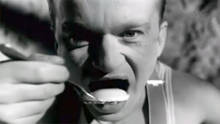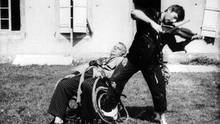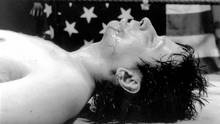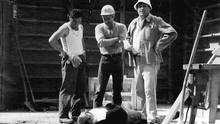Early Shorts by Famous Artists
Early Shorts: Programme 1 Early Shorts: Programme 2
For most people, adolescence is a time of trying out drugs, sex and other forms of entertainment. It is a time in which we think that we are standing at the centre of the universe, gazing at it from an all-embracing perspective, while all our opinions and ideas are like gold bars studded with diamonds, as if they were candy bars made of precious metals and stones. It often takes many years for the realisation to set in that our evaluation of our own perspective and artistic talent had been compromised by an intoxicating mixture of hormones and other mind altering substances. That is why an encounter with one’s own juvenile artistic effusions often leads to a lesson in shame and humility.
Our special programme ›Early Works‹ is dedicated to directors who distinguished themselves by creating impressive short films at an age when most people were still busy adding a period of mental growing up to the physical one.
In the 90s, Thomas Vinterberg shot to international fame as a founder of the Dogma movement and the director of ›Festen‹ (1998). When he was 24, he filmed the award winning ›Last Round‹ (1993) as his graduation short from The National Film School of Denmark. Similar to ›Festen‹, ›Last Round‹ is about one celebration. The dark prevailing mood and the currents of humour underneath are already present in this early work.
In Germany, the Canadian director Mike Clattenburg is still relatively unknown. However, his long-lived mockumentary comedy show ›Trailer Park Boys‹ about three inept good-for-nothings celebrated great successes in Canada, the USA and the UK. Still it had been cancelled after a few months on German Comedy Central. The verdict is still out whether this reflects poorer on Comedy Central or the German sense of humour. Prior to filming ›Trailer Park Boys‹, Mike Clattenburg cast his three future leading actors in his short film ›Cart Boy‹. In it, he offers a pseudo-documentary look on the absurdity of the life of people forced to scratch a living by means of petty crime and meaningless jobs.
Fraud and blue-collar work are also central to Peter Thorwarth’s short ›If it Don’t Fit, Use a Bigger Hammer‹. This black humoured comedy is an example for a short which was eventually remade as a feature. Both versions, that from 1997 and the 2002 remake, had Willi Thomczyk, Ralf Richter and Peter Thorwarth playing the same parts.
In 1989, twelve years before the titular heroine of ›Amélie‹ listed her likes and dislikes, the actor Dominque Pinon did the same thing in the same manner in ›Foutaises‹. However, the similarity is no accident, since in both cases the director was the same man: Jean-Pierre Jeunet. He already used many techniques and styles in his early shorts that would eventually endear him to a worldwide audience in his features, such as the narrating main character and the underpinning of the spoken word with at times surreal pictures.
In 1960, when Richard Lester was 28 years old, he influenced a whole generation of British comedians, most notably Monty Python’s Flying Circus, with his ›Running, Jumping & Standing Still Film‹. This absurd and surreal experimental slapstick film featured Peter Sellers three years before his first appearance as (chief) inspector Jacques Clouseau. Lester succeeded in bringing the unique blend of humour and zaniness of Spike Milligan’s Goon Show onto the big screen and in the ensuing years he followed it up with more comedies full of absurd elements and lots of slapstick, such as his films with the Beatles and ›How I Won the War‹ (1967) starring John Lennon.
While the above mentioned directors have all made enough films for a general trend to manifest, this can only be anticipated with the British artist Sam Taylor-Wood. The director of ›Nowhere Boy‹ is represented with her debut short ›Love You More‹ (2008).






